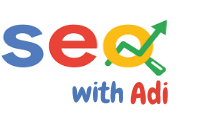What does SEO mean in marketing?
SEO stands for programme optimisation. it's the method of optimizing an internet site so as to boost its ranking on search engines like Google. The goal of SEO is to extend the visibility of an internet site or online page within the unpaid, or "organic," search results of search engines. There area unit many various techniques and techniques which will be accustomed optimize an internet site, as well as things like keyword analysis, content creation, and link building. By up the ranking of an internet site on search engines, businesses will increase their visibility and attract additional qualified traffic to their web site, which might cause additional sales and conversions.
SEO will be divided into 2 main categories:
on-page SEO and off-page SEO. On-page SEO refers to the optimisation of the content and HTML ASCII text file of an online page, whereas off-page SEO refers to the method of obtaining external links from different websites.
Search engines use algorithms to see the relevancy and authority of a website and its pages, and to make a decision that pages ought to rank higher within the search results. There ar several factors which will influence however a research engine ranks a website, as well as the standard and relevancy of the website's content, the structure and organization of the website, the speed at that the website masses, and therefore the presence of external links inform to the web site.
SEO may be a continuous method, as search engines ar perpetually change and up their algorithms. this implies that it's necessary for businesses to unceasingly monitor and optimize their websites so as to keep up and improve their ranking on search engines.
There ar several tools and resources accessible to assist businesses with their SEO efforts, as well as keyword analysis tools, SEO analytics platforms, and content management systems with integral SEO practicality.
On-page SEO:
On-page SEO refers to the improvement of the content and hypertext mark-up language ASCII text file of an online page. Some specific on-page SEO techniques include:
Keyword research: distinctive the foremost relevant and standard keywords and phrases that folks square measure looking for in respect to a selected product or service. These keywords ought to be incorporated into the content of the website during a natural means, and might even be enclosed within the hypertext mark-up language tags (such because the title tag and header tags) of the website's pages.
Content creation: making high-quality, relevant, and informative content that addresses the requirements and interests of the website's target market. This content ought to be literary and well-organized, and will be optimized for the target keywords.
Meta tags:
These square measure hypertext mark-up language tags that give info a few website, and square measure utilized by search engines to grasp the content of the page. Meta tags embrace the title tag (which seems because the title of the page within the search results), the meta description (which seems as a quick outline of the page within the search results), and also the meta keywords tag (which isn't utilized by most search engines).
Off-page SEO:
Off-page SEO refers to the method of obtaining external links from alternative websites. These links ar vital as a result of they function a vote of confidence within the quality and connection of the web site. once an internet site contains a heap of external links inform to that, search engines read it as being a lot of authoritative and trustworthy, and as a result, it'll rank higher within the search results. Some specific off-page SEO techniques include:
Link building:
This refers to the method of exploit links from alternative websites. this will be done through a spread of strategies, like guest blogging, making valuable resources that alternative websites can wish to link to, and collaborating in on-line communities and forums.
Social media marketing:
This refers to the employment of social media platforms (such as Facebook, Twitter, and LinkedIn) to push an internet site and its content. By making and sharing high-quality content on social media, businesses will attract followers and build their on-line presence, which may result in a lot of external links and improved search rankings.




.png)
0 Comments